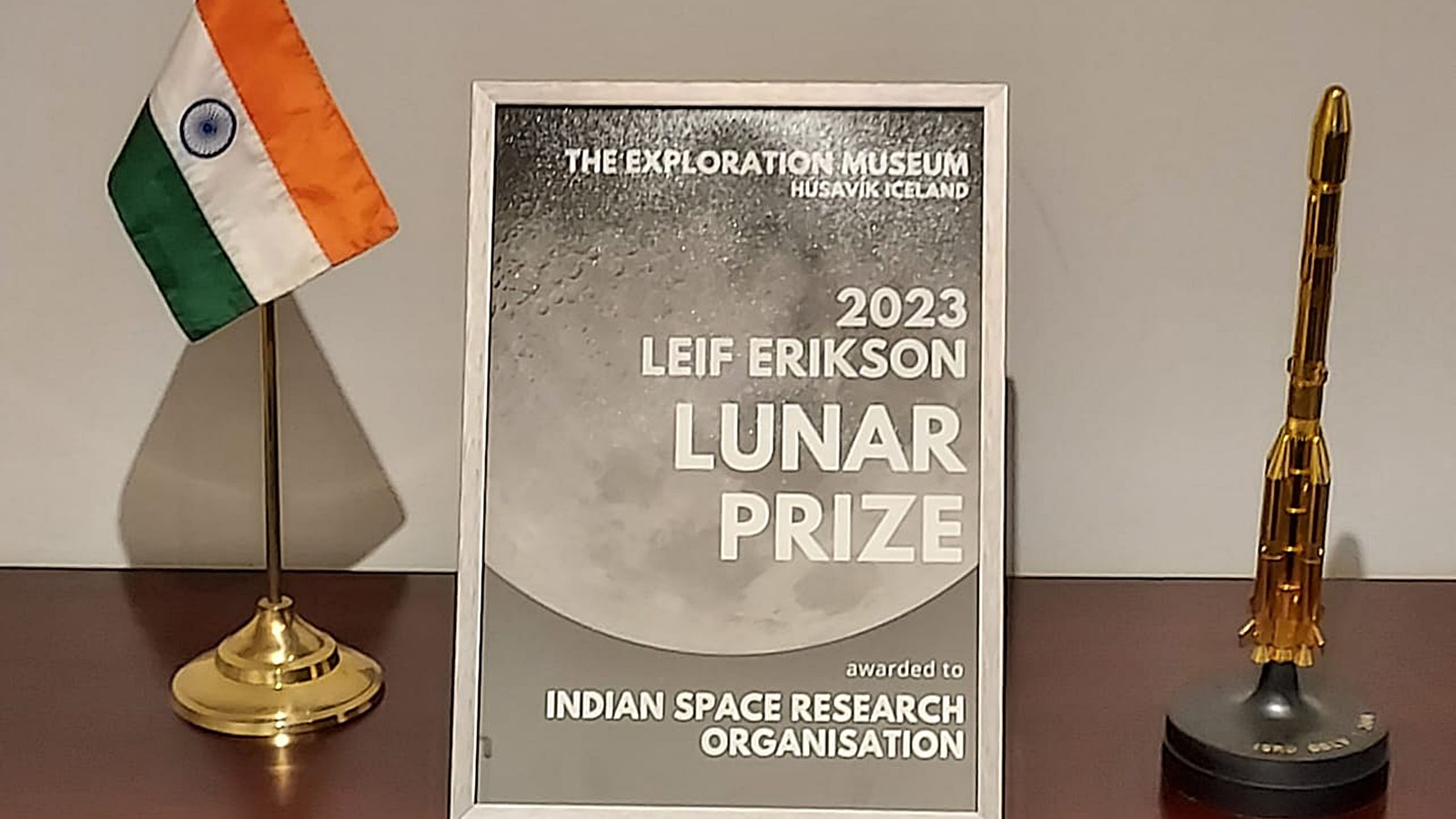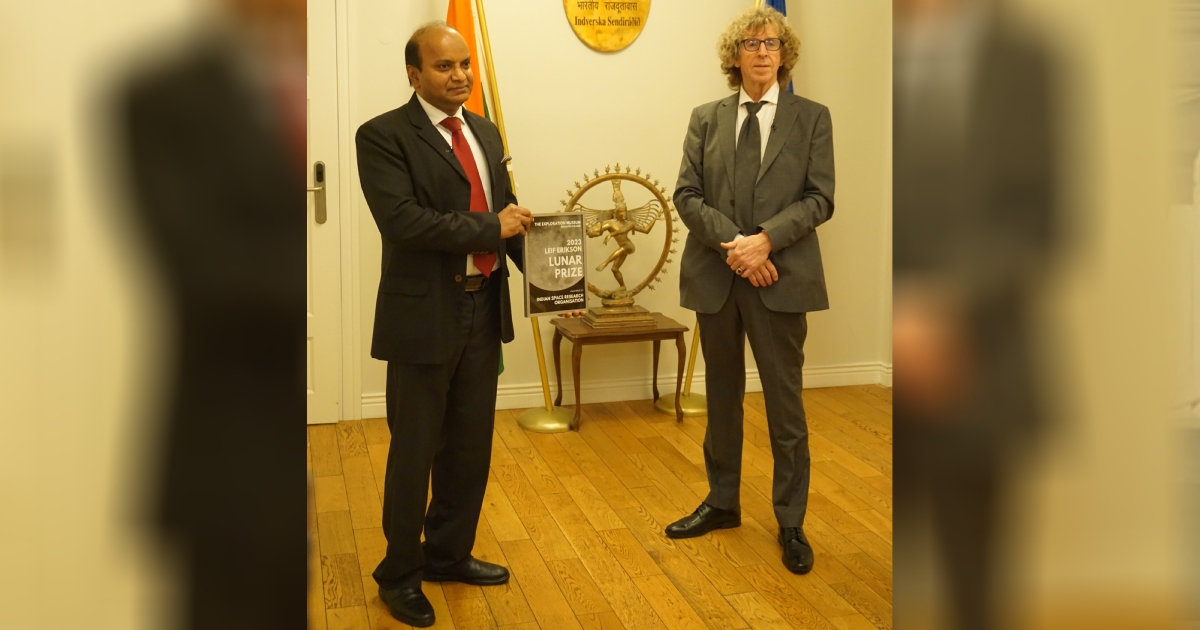ISRO awarded the 2023 Leif Erikson Lunar Prize for Chandrayaan-3
The Indian Space Research Organisation (ISRO) received the 2023 Leif Erikson Lunar Prize for its successful Chandrayaan-3 mission. The award was given by the Exploration Museum in Husavik, Iceland, and recognizes the first soft-landing of a spacecraft near the lunar south pole.
The award celebrates trailblazers in lunar exploration and their contributions to humanity’s understanding of the cosmos. The mission’s success is attributed to several technological advancements, including software enhancements that improved navigation algorithms, guidance systems, and fault tolerance mechanisms.
The award was received on behalf of ISRO by Indian Ambassador Balasubramanian Shyam. ISRO Chairman S. Somanath expressed gratitude for the prestigious honor.
About Leif Erikson Lunar Prize
It is an annual award given by Exploration Museum in Iceland’s Husavik. It is dedicated to the history of human exploration, from the early explorers to the exploration of space.
It is named after the Icelandic explorer Leif Erikson who is considered the first European to land in North America.
The 2023 award celebrates first soft-landing of a spacecraft near lunar south-pole, which marked another major achievement for ISRO.

source: Internet
About Chandrayaan-3
- Demonstrate a safe and soft landing
- Showcase the rover’s mobility
- Conduct scientific experiments
About Indian Space Research Organisation (ISRO, HQ: Bengaluru)
ISRO, previously the Indian National Committee for Space Research (INCOSPAR), was set up in 1962.
Later, on August 15, 1969, ISRO superseded INCOSPAR and was subsequently brought under Dept of Space in 1972.
Role of ISRO in nation-building
♦ Earth Observation, Meteorological Satellite Systems: Supports disaster management, etc.
♦ Communication Satellite Systems: INSAT satellites contributes significantly to socio-economic and strategic activities.
♦ Navigation Systems: GPS Aided Geo Augmented Navigation (GAGAN) assists in civil aeronautical navigation.
♦ Capacity Building: ISRO has transferred more than 363 technologies across India for commercialization, societal application, etc.
♦ Space Science and Planetary Research Systems: Aditya-L1 project for understanding the Sun.
♦ Space Transportation System: India has achieved self-reliance in space transportation capability via PSLV and GSLV.
